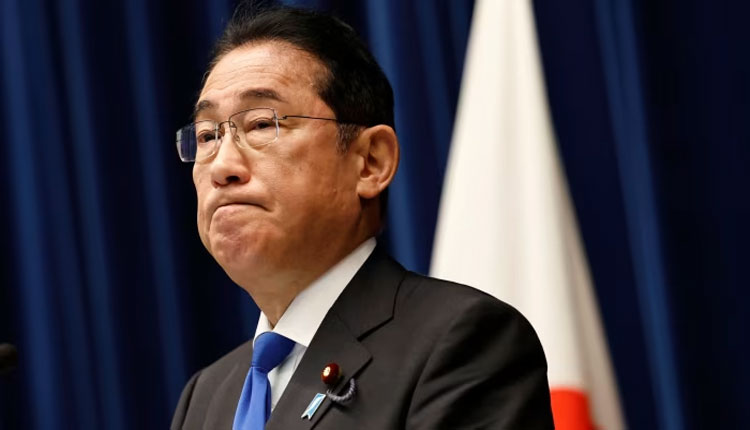Tokyo: Japanese Prime Minister Fumio Kishida announced his resignation on Wednesday, August 14, citing declining public trust and a series of political scandals as the main reasons behind his decision. Kishida stated that he would step down next month, and the ruling Liberal Democratic Party (LDP) will not contest the upcoming vote to elect a new party leader.
Kishida’s term in office has been marked by numerous challenges, with his popularity hitting a historic low. The latest opinion polls show his approval rating at just 20%, down from 60% when he first took office. Rising inflation, which Kishida’s government struggled to control, exacerbated public dissatisfaction, leading to increased pressure on his administration.
The Prime Minister, born in Hiroshima 12 years after the atomic bombing, comes from a political family. Both his father and grandfather served as representatives in Japan’s lower house of parliament. Before entering politics, Kishida worked at Shinsei Bank for five years. He was first elected to the lower house in 1993 and became foreign minister in Prime Minister Shinzo Abe’s cabinet in 2012. Kishida assumed the role of LDP president in September 2021 and subsequently became Japan’s prime minister. He currently leads the moderate Kochikai faction of the LDP, which holds 47 seats in parliament.
In his resignation statement, Kishida stressed the importance of public trust in politics. “Without the trust of the people, politics cannot function,” he said, referencing the various scandals that have tainted his government’s image. His resignation is seen as a move to rebuild the party’s credibility and distance the LDP from recent controversies.
One of the significant scandals involved LDP MPs from the Seiwa Sesaku Kenyukai, Shisuikai, and Kochikai factions, who were accused of failing to report over 600 million yen in cash contributions. Additionally, connections between some LDP members and the controversial Unification Church further damaged the party’s reputation.
Kishida also faced difficulties on the economic front. His vision for a “new capitalism” aimed at addressing Japan’s sluggish growth yielded little success, further contributing to his declining support.
Kishida’s resignation signals a critical moment for the LDP as it prepares to select a new leader capable of restoring public confidence and addressing the pressing economic and political issues facing the nation.



Comments are closed.